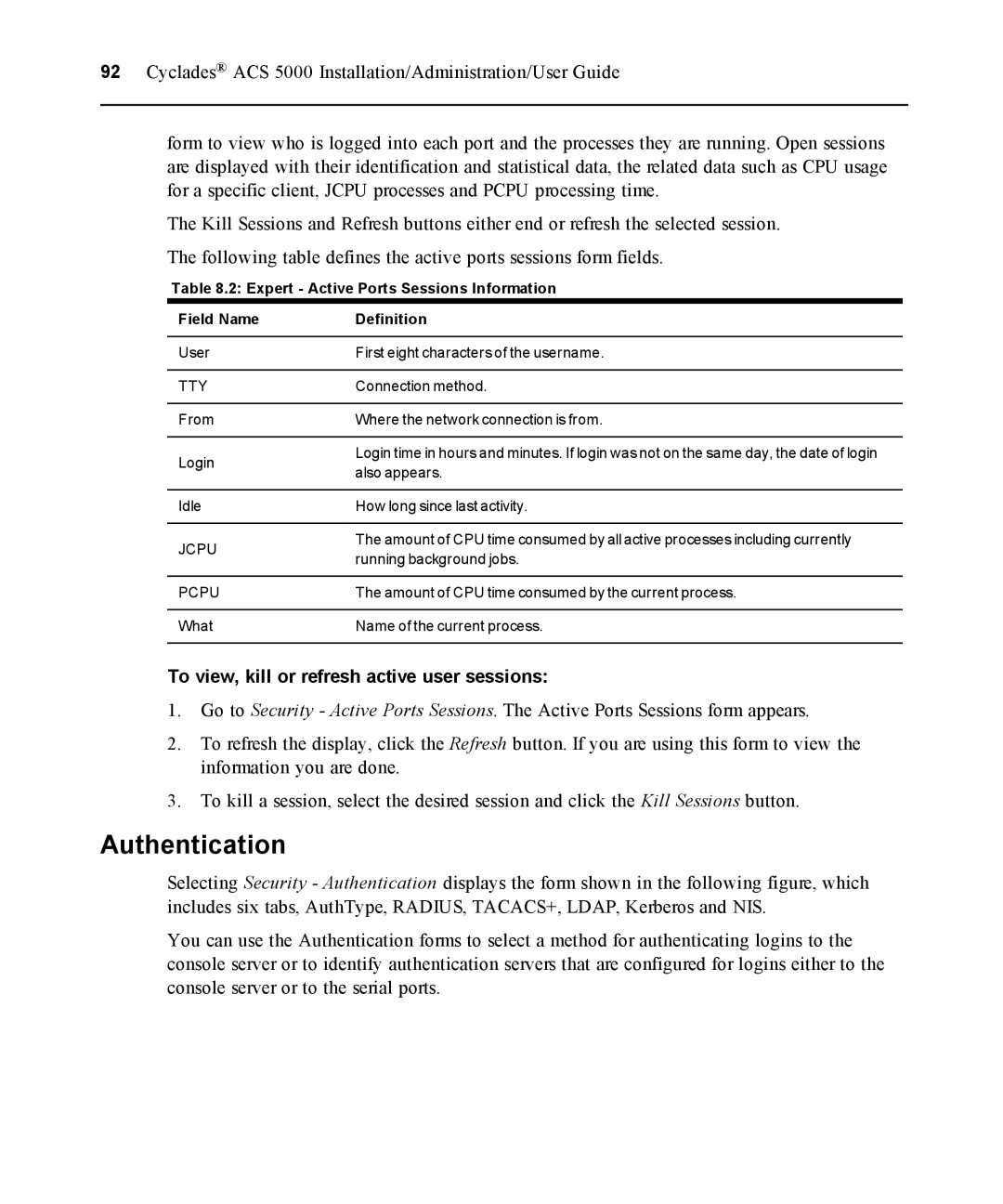
92Cyclades® ACS 5000 Installation/Administration/User Guide
form to view who is logged into each port and the processes they are running. Open sessions are displayed with their identification and statistical data, the related data such as CPU usage for a specific client, JCPU processes and PCPU processing time.
The Kill Sessions and Refresh buttons either end or refresh the selected session.
The following table defines the active ports sessions form fields.
Table 8.2: Expert - Active Ports Sessions Information
Field Name | Definition | |
User | First eight characters of the username. | |
TTY | Connection method. | |
From | Where the network connection is from. | |
Login | Login time in hours and minutes. If login was not on the same day, the date of login | |
also appears. | ||
| ||
Idle | How long since last activity. | |
JCPU | The amount of CPU time consumed by all active processes including currently | |
running background jobs. | ||
| ||
PCPU | The amount of CPU time consumed by the current process. | |
What | Name of the current process. |
To view, kill or refresh active user sessions:
1.Go to Security - Active Ports Sessions. The Active Ports Sessions form appears.
2.To refresh the display, click the Refresh button. If you are using this form to view the information you are done.
3.To kill a session, select the desired session and click the Kill Sessions button.
Authentication
Selecting Security - Authentication displays the form shown in the following figure, which includes six tabs, AuthType, RADIUS, TACACS+, LDAP, Kerberos and NIS.
You can use the Authentication forms to select a method for authenticating logins to the console server or to identify authentication servers that are configured for logins either to the console server or to the serial ports.
